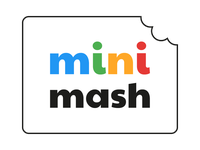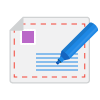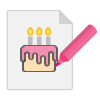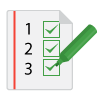The Writing Framework: Writing in the Early Years
Sept. 8, 2025
Teachers starting back in schools this September will no doubt be discussing the new writing framework, launched before the summer holidays.
The focus of the framework was to ensure that children leave primary school working at the expected standard in writing, with practical guidance on how schools can move towards achieving this.

As all teachers know, the essential skills needed for success in writing start in the Early Years Foundation Stage, and the framework makes it clear: secure early foundations are the key to future writing success. Read on to see what this looks like in practice, and how Mini Mash can support your setting.
Why Early Writing Matters
School leaders should understand the important role that reception plays in building the foundations for writing. These foundations support children throughout primary school and eventually underpin their success in the end of key stage tests in year 6, preparing them effectively for secondary education. Children who are behind in communication, language and literacy development at age 5 are less than half as likely to achieve grade 4 or higher in GCSE English Language.
- The Writing Framework
Writing skills start long before children are writing full sentences on paper. In EYFS, pupils are developing many of the skills mentioned in the writing framework:
- Transcription Skills - building the muscles, fine motor skills and phonetical awareness for handwriting and spelling
- Composition Skills - roleplaying, talking and sharing their ideas ready for writing their own stories
- Confidence and Motivation - believing they are writers and writing for purpose
Taking these important foundations into consideration, the government's Plan for Change has set a milestone of 75% of children reaching a Good Level of Development (GLD) by the end of reception by 2028, measured through the Early Learning Goals.
What Does the Framework Recommend for EYFS Writing?
Some of the key principles that are recommended in the writing framework are:
Letter Formation and Handwriting
- This should be taught from the beginning of reception, alongside phonics
- Teaching and practice should be regular (ideally daily), including teaching of how to manouevre their muscles in the correct way
- Children should learn how to hold and control a pencil correctly
- Initial lessons can include 'writing' letters in the air or with their finger on a surface that leaves a mark (e.g. sand)
- Children should be provided with plenty of opportunities to develop fine and gross motor skills to help them in writing
- Teachers must ensure letter formation is secure before text gets longer
Emergent Writing
- Some children may begin drawing and making marks, some may begin writing single letters, their name or whole words
- Writing equipment such as pencils and paper should be made available across the classroom to enable children to 'write' during play
- Not all children will do emergent writing, and some might prefer to do other activities during play - emergent writing is not a necessary step towards writing, but there are ideas in Development Matters on engaging children in foundational writing activities
Using Mini Mash for Letter Formation and Handwriting
Mini Mash, the online platform for little learners, can be utilised to support the writing framework in a range of settings.
Tools that can help teachers develop correct letter formation with their students include:
- Builders Tray - a digital tray with a multitude of surfaces, tools and toys to encourage exploration, including letter and number formation. This digital tray can be used with a mouse or touchscreen, allowing different motor skills to be developed.
- 2Handwrite - Mini Mash users will also have access to all Purple Mash tools, including 2Handwrite, where teachers can model correct letter formation and easily replay it.
Oral Composition and Early Sentences
- Writing composition should begin with orally composed sentences with children saying out loud what they want to write
- There should be high-quality spoken interactions between children and adults with the adults' own language provides a model
- Children should be encouraged and supported to join in and repeat using call and response
- Children should have lots of opportunities to share and elaborate on their ideas
- Children at this stage should not be expected to produce extended pieces of writing
- Dictation is helpful and may be asking children to write individual letters or a single word, or a simple sentence after saying it.
Using Mini Mash to support Early Writing
Mini Mash contains a range of digital writing templates which can also be printed for use offline. For children who are beginning to write sentences, they are sure to enjoy 2Create a Story, a digital tool that allows children to combine words, pictures and sounds to create exciting eBooks.
Spelling Foundations with Phonics
- Schools should use a validated systematic synthetic phonics programme to support children to recognise letters and their sounds
- Phonics should be taught from the start of reception
Using Mini Mash to support Phonics teaching
Mini Mash contains a range of resources that can be used to support the teaching of Phonics in your setting:
- Alphabet Slideshows
- Letter Painting
- Alphabet Jigsaws
- Alphabet Pairs Games
- Initial Sound Quizzes
- Missing Sound Quizzes
- Word Cloze Activities

Mini Mash is included with a school subscription of Purple Mash, but it can also be bought separately for nurseries and childminders. Find out more about Mini Mash and get a free trial here.



